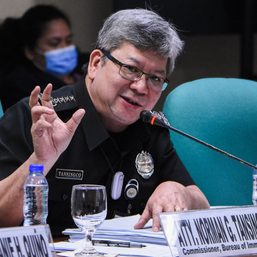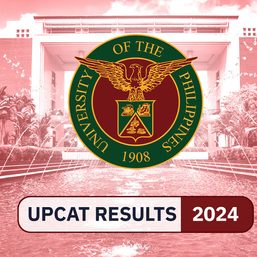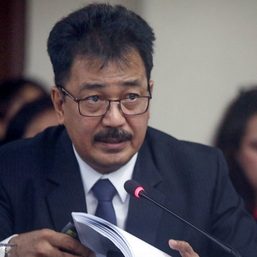SUMMARY
This is AI generated summarization, which may have errors. For context, always refer to the full article.
![[OPINION] What should General Education classes teach in the time of pandemic?](https://www.rappler.com/tachyon/2020/09/gen-ed-in-pandemic-September-23-2020.jpg)
Part and parcel of tertiary education are the so-called General Education (GE) courses. These are taken by all students regardless of their degree programs. While major courses are designed to teach students the specific set of skills and knowledge about their respective disciplines or fields, GE courses draw from the integrated knowledge of arts, humanities, natural and social sciences, and mathematics.
Like the major courses, GE courses had to be restructured as colleges and universities adjusted their curricula amid the coronavirus pandemic. And because face-to-face interaction is no longer allowed, revising the courses meant the crafting of new and effective ways of delivering the activities and assessments that are suitable for remote learning.
The main concern of technical and specialized courses is on mastery of the methods to ensure the successful delivery of outcomes. But in the case of GE, the bigger and more challenging question lies in its purpose.
Coming from the tradition of liberal education, the primary goal of GE is the liberation of our minds. The words of the Filipino sociologist Randy David are instructive here: “Liberation from what? From superstition, from bad thinking, from dogma, from prejudice, and from one’s own unexamined habits of thought. The road to liberation is critique.”
As a force that liberates, what, then, should schools’ GE program, courses, and teachers offer to its students during this pandemic? It should be primarily responsible for helping the students develop the ability to ask the right questions about the current state of their lives and of the world as we face the pandemic. GE teachers should be able to guide their students in processing the changes that are happening around us. GE courses should also become the platform through which students can freely reflect on their own experiences amid the crisis. GE classes should offer a space where students could discuss potential actions that they can do to help their families and immediate communities during these trying times. Ultimately, GE should help us become critical, especially about people and groups of people trying to take advantage of the situation.
How can educational institutions, teachers, and even students, make these possible? First, the coronavirus pandemic or, at the very least, certain issues associated with it, should be discussed in class. Although there might be a standard course guide, teachers may find a way to incorporate such matters into the discussion. Second, aside from the prescribed general textbooks and modules used in the class, it would be enriching for them if they will also read news articles about the current state of the pandemic. Finally, assessments should be more than mere memorization of concepts, dates, or names, important as they may be. Rather, there must be self-reflection and collaboration to facilitate exchanges of ideas about how they are dealing with the crisis and its challenges.
These plans should rest on the fundamental idea that the main laboratory of GE is the real world. Unfortunately, this is what most students miss. Instead, many would regard GE classes as an additional course that they have to take to satisfy the required number of units per semester. Furthermore, they are being pressured by the thousand and one requirements that distract them from the point of taking GE courses.
This is not to undermine the utility of activities and assignments administered in GE classes. They are still necessary to facilitate learning. But they should always be checked if and when they are becoming distractions to what is important: to take the classroom into the world and to bring the world into the classroom.
All these efforts are directed toward the liberation of the mind that GE promises. The process is not just about knowing the truths about the world as we face the COVID-19 pandemic but, more importantly, it is about making these truths relevant in our lives. It begins with the ceaseless questioning of the realities, even the harsh ones, unfolding before our eyes. But we cannot stop there. There is so much to be unpacked in the world today as we struggle against the global pandemic. GE holds the potential to understand it. The liberation of the mind that GE offers can only happen if the GE courses themselves can break free from its isolation from the real world.
I treat the whole process of redesigning the GE courses not just as an adaptive mechanism to ensure the delivery of quality education. More importantly, it is an invitation for us to rethink of new ways for GE to serve a greater purpose: to develop critical thinkers who can transform the world. Even after this pandemic, GE courses should be treated neither as an added burden on both students and teachers nor a minor course. The time now is ripe for it to prove its worth as the laboratory of life. – Rappler.com
Prince Kennex R. Aldama is an assistant professor of sociology at the Department of Social Sciences, UP Los Baños.
Add a comment
How does this make you feel?
![[OPINION] The Filipino Teacher, ‘quarantined’ education, and the need for critical pedagogy](https://www.rappler.com/tachyon/2020/07/Pedagogy-Critical.jpg?fit=449%2C449)


![[Time Trowel] Evolution and the sneakiness of COVID](https://www.rappler.com/tachyon/2024/02/tl-evolution-covid.jpg?resize=257%2C257&crop=455px%2C0px%2C1080px%2C1080px)


![[Time Trowel] Mentorship matters](https://www.rappler.com/tachyon/2024/04/mentorship-matters.jpg?resize=257%2C257&crop_strategy=attention)




There are no comments yet. Add your comment to start the conversation.